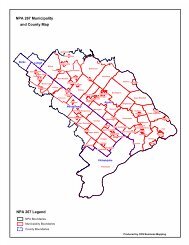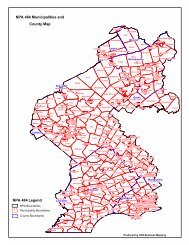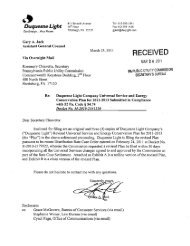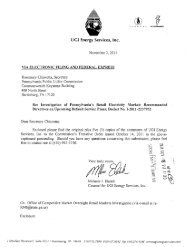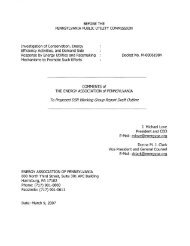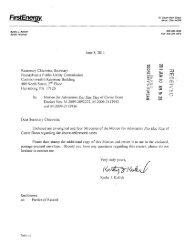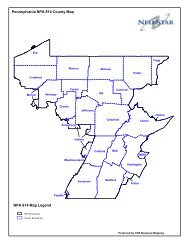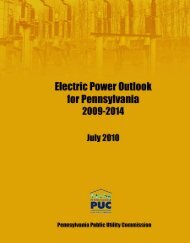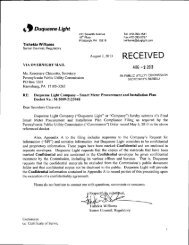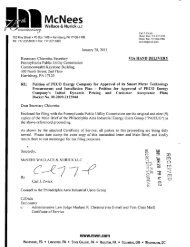METROPOLITAN EDISON COMPANY - Pennsylvania Public Utility ...
METROPOLITAN EDISON COMPANY - Pennsylvania Public Utility ...
METROPOLITAN EDISON COMPANY - Pennsylvania Public Utility ...
- No tags were found...
Create successful ePaper yourself
Turn your PDF publications into a flip-book with our unique Google optimized e-Paper software.
with transactions covered by other AIAs 3 . However, the Audit Staff does not believethere are AIAs on file with the Commission that cover all the transactions with theaffiliates listed above. Based on the Audit Staff’s review, it appears that the FE-PACompanies and/or FirstEnergy are not in compliance with Section 2102 of the<strong>Pennsylvania</strong> <strong>Public</strong> <strong>Utility</strong> Code which requires them to submit contracts fortransactions with affiliates to the Commission for approval. Furthermore, due to thecomplexities and size of the merger agreements/acquisition contracts between FE-PACompanies and their affiliates it is difficult to determine what affiliated transaction are, orare not, subject to an AIA filed with and approved by the Commission; therefore it wouldbe beneficial for the FE-PA Companies to file an updated AIA(s) that clarifies all theirtransactions occurring with affiliates.Staff’s Follow-up Recommendation – Revise the Amended & Restated MutualAssistance Agreement to include all affiliates with whom the FE-PA Companiestransact business and submit it to the Commission for review and approval.Prior Recommendation – Provide to the Commission Staff a detailed, writtenjustification for dividend payouts above 85 percent against other potential uses for cashwithin the utilities.Prior Situation – BWG found that formal dividend policies did not exist and there wereno internally or externally imposed restrictions on dividends. From 2002 to 2005, theFE-PA Companies combined had paid an average of $111 million to their parent individends each year. The FE-PA Companies’ Boards of Directors reviewed the amountof dividends that could be paid based on recommendations from “corporate” cashavailable and declared the dividend to be paid by each of the FE-PA Companies. BWGindicated that, based on its experience, dividend payouts from regulated utilities toholding or parent companies should range from 75 to 85 percent. Over the period 2002to 2005, Met-Ed and Penelec had dividend payouts averaging 93.2% and 88.9% of netincome, respectively. Penn Power was the only Company below the 75% to 85%benchmark, with an average dividend payout of 46.2% of net income. Although thepayouts had not had a negative impact on the financial strength of any of the<strong>Pennsylvania</strong> utilities, BWG questioned whether or not the Met-Ed and Peneleccustomers would have benefited from retention of some of the funds for potential usessuch as further system reliability improvements.3 In January 2009, the FE-PA Companies filed an amended affiliated interest agreement (AIA) to theCommission for approval per a recommendation made by Commission Prosecutory Staff following theconclusion of an informal investigation involving the FE-PA Companies’ affiliated interest transactions.On May 11, 2010, the FE-PA Companies submitted a revised AIA that included revisions as requested byCommission staff for approval. This latter revised AIA was included as part of a Joint Application filedMay 14, 2010, seeking approval of the merger of FirstEnergy and Allegheny Energy and later approvedby the Commission when it approved the merger by order entered February 24, 2011. Thereafter, onMay 2, 2011, the FE-PA Companies filed a petition with the Commission to withdraw the agreement filedin January 2009 as amended in May 2010 as moot because the revised AIA was approved in the mergerproceeding. In the petition, the FE-PA Companies also indicated that they are reviewing their AIAs,including the AIA approved in the merger order, to determine if any additional revisions are necessary.- 21 -



